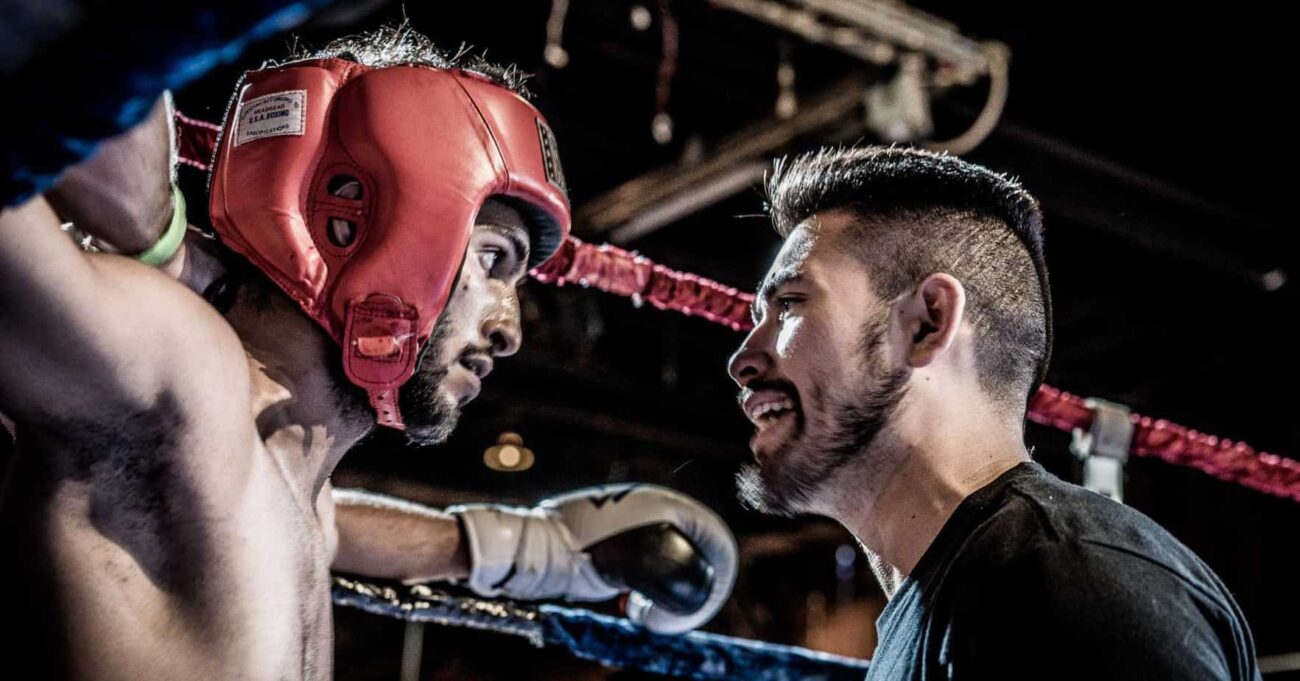While some martial artists thrive to become successful fighters, some want to be the person behind the successful fighters – the coach, or the instructor – however you want to name it.
The reason for that might be injuries preventing you from being a fighter, or maybe just a desire to teach kids martial arts.
So, I decided to write this article where I will talk about how to become a martial arts instructor!
In general, to become a martial arts instructor, you have to have some experience in the given martial art. Also, you will have to obtain some sort of certificate to be able to teach martial arts.
That was put as simply as possible. But, there is more to it. In this article, I will go through all things you should know if you want to become a martial arts instructor.
If your desired martial art is wrestling, then be sure to check out our specific guide to become a wrestling coach.
What Does a Martial Arts Instructor Do?
The job of a martial arts coach is pretty demanding and stressful. They can train both amateurs and professionals, but whether it’s one or the other – the job is pretty demanding.
Your goal is for your protégé to win, for him to learn something and improve a lot on his skills.
Simply put, your job is for him to be the best. And in order for him to be the best, he has to be better than all of his potential opponents.
The thing is – all the other trainees and coaches think exactly the same as you do, so you’re dealing with a perpetual need to outwit your opponent at every step.
A martial arts instructor has two main jobs – preparation and analysis.
When talking about the preparatory aspect of martial arts training, an martial arts instructor needs to:
- have good knowledge of kinesiology,
- know the martial art itself,
- have great organizational skills,
- know how the human body works,
- know how he can enhance his protégés’ abilities and physique,
- plan and organize training sessions,
- work out a lesson plan (usually for the whole year, because training sessions usually function as a school year, along with the tournament schedules)
- find the best types of workout for a trainee’s evolution,
- be able to motivate his protégé to follow the demanding training.
Amateurs are slightly less demanding than (potential) professionals, but the fact is that all these groups require work, time, and determination, because even if two of them won’t bring you any trophies or a ticket to the Olympics, they still need you and your guidance so you have to be prepared to do your job.
And that is exactly why an instructor is absolutely necessary because the trainees need to focus on the training; the coach is there to direct his course.
When dealing with this aspect, I have to stress out that an instructor also has to be a good psychologist and a pedagogue, especially when working with kids.
Instructors usually work in groups and it requires some skill and knowledge for them to coordinate the whole group and to resolve any potential quarrels.
Also, if an instructor is dealing with children, he has to be good with them.
He has to know how to talk to them, how to motivate them, but also how to listen to them and how to help them because he can be an important role model for young(er) children.
Analysis concerns both tactics and scouting.
Although most martial arts are individual sports (well, practically all of them are, but there are some exceptions within some arts and sports) where tactical variants are relatively limited compared to team sports, that does not mean you can just enter a future match without any kind of preparation.
Certainly, some fighters have a plethora of moves and approaches, but some fighters have signature moves and you need to prepare your strategy to successfully fight an opponent and win.
This is where scouting comes in. You have to study your opponent to be able to prepare for a fight against him.
A trainee or fighter can do some partial scouting himself, but it is the coach that has to combine both these analytical elements into one aspect and create an idea on how to win.
What Qualifications Do You Need to Teach Martial Arts?
When education is concerned, there are several possibilities and this is where it actually gets tricky.
Namely, there is no unified standard for martial arts instructors, and each art, each school even, has its own criteria which vary differently from each other.
Most instructors usually need at least a 1st degree black belt in the martial art they are instructing. This is logical because of two reasons.
Firstly, black belts in martial arts are usually considered to be instructor belts, meaning that by obtaining one, the holder automatically becomes eligible for an instructing position; some martial arts (like BJJ, for example) require higher degrees of a black belt for a holder to start instructing, but the general idea is nevertheless the same.
Secondly, in order to teach, it is only logical that you need to have mastered all the necessary skills to do so, and a black belt is usually proof enough of that, which is why you need to have one before you start passing your knowledge onto others.
Another usual prerequisite is licenses.
Most school or college instructors need to have some sort of license, which means that college and professional coaches have to be certified by the state, national or international organizations, while instructors at different gyms may or may not need one to work there.
Despite your experience and education, your employer might demand that you pass an official license exam and obtain a certificate.
Do You Have to Be Certified to Teach Martial Arts?
You’ll need to attend obligatory courses, pass exams and obtain a license before you can be officially certified.
Check where you can obtain the certificate based on where you live. A simple Google search will do the trick!
Such certification is required at higher levels, but it can be substituted with obligatory courses and training for lower levels.
But as I’ve said, this is not universally accepted so you might just find a place where they don’t ask for a certificate or license.
Both professional and amateur instructors usually hold a bachelor’s degree, although there is no strict formal standard when it comes to the education of martial arts instructors.
The degree can typically be in any field, but most instructors have studied sports sciences, kinesiology, or some similar discipline that covers some aspects of training a professional sportsperson.
A classic exception and this is very specific, are high school wrestling coaches, who are typically professors and/or school administrators that take on an extra role; high school sports generally work like that (p.e. the history teacher is also the basketball coach), so wrestling is not an exception.
A fourth possibility is just imitating your mentor and instructor. A lot of instructors, regardless of the above-mentioned criteria, just copy what they’ve been taught, which can be good, but also very bad.
If your teacher was a great one, a professional and a famous master of the art, then replicating him can be a good idea since you pass on knowledge with proven quality.
On the other hand, if you just have an illusion of him being good, this can do a lot of harm to your students and can decrease your value as an instructor, because you’re not only bad, you’re also lacking in originality.
Experience in art is desired, but it is also not a prerequisite, especially in high school sports. Even some random episodes count towards experience, but the more you have, the better.
Trainees will usually want to work with more experienced instructors as they can also teach them from experience, in addition to classical theoretical stuff.
How Much Money Can You Make Teaching Martial Arts?
As of July 28, 2021, the average salary for Martial Arts Instructors in the United States was $36,949, but the salary range typically ranges from $27,196 to $51,688.
| Percentile | Salary |
|---|---|
| 10th Percentile Martial Arts Instructor Salary | $18,650 |
| 25th Percentile Martial Arts Instructor Salary | $27,196 |
| 50th Percentile Martial Arts Instructor Salary | $36,949 |
| 75th Percentile Martial Arts Instructor Salary | $51,688 |
| 90th Percentile Martial Arts Instructor Salary | $65,107 |
Education, certification, additional skills, the years of experience you have in your profession, and many other factors can affect your salary.
Of course, martial arts instructors employed by professional fighters who train for the Olympics earn more, as do instructors employed by MMA fighters, but these numbers are mostly kept hidden from the public, as they are considered to be protected under privacy laws.
What Skills Do You Need to Become a Martial Arts Instructor?
Before I conclude my text, I’ll bring you a short list of the basic skills needed to start off as a good martial arts instructor:
- Good communication skills
- Good motivational skills
- Decision making skills
- Analytical mind
- Tactical skills
- Scouting experience
- Dedication
- Good interpersonal skills
- Good listening skills
- Basic knowledge of psychology
- Basic knowledge of child psychology
- Experience in pedagogy
- Basic knowledge of the human body (anatomy, medicine, physiology, …)
- Patience
- Respect for your protégé and others
- Sportsmanship
- Leadership skills
- Resourcefulness
- Experience in wrestling
- Wider knowledge
That covers everything you need to know if you’re pondering a career as a martial arts instructor.
It is by no means an easy task – you have to know a lot and work even more – but it’s nothing insurmountable and you can easily be a good instructor if you invest yourself hard enough.
There are some basic skills you need to have and things you need to do before getting the hang of it (e.g. a black belt, a certificate, etc.), but once you’re done with that – you’re ready to go.
The money isn’t that big, but you can be satisfied with other aspects, such as the success of your protégé.
And who knows, you might even reach the Olympics as an instructor at one point or even become an instructor for an MMA fighter, where your skills and determination will also provide you with more money.
That’s all for today. I hope you found this article informative and interesting, and that you will keep following me for more of the same. Until next time!

